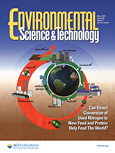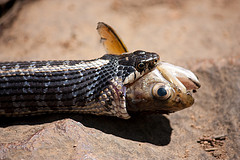![]() The Lancet Oncology is correcting a 2011 article about the cancer risks of radiofrequency electromagnetic fields, such as those from cell phones, to clarify information about potential conflicts of interest for one of the experts who was involved in its preparation.
The Lancet Oncology is correcting a 2011 article about the cancer risks of radiofrequency electromagnetic fields, such as those from cell phones, to clarify information about potential conflicts of interest for one of the experts who was involved in its preparation.
The assessments appeared as a monograph for the International Agency for Research on Cancer (IARC).
However, after the 2011 paper “Carcinogenicity of radiofrequency electromagnetic fields” appeared, a reader raised allegations of conflicts of interest among its participants, which sparked a reconsideration of their disclosures.
The correction concerns the conflicts of interest for Niels Kuster of the Swiss Federal Institute of Technology in Zurich, also a board member of the non-profit IT’IS foundation.
Kuster told Retraction Watch he disclosed everything upfront:
Continue reading Lancet Oncology updates conflicts of interest statement for cancer-cell phone paper








